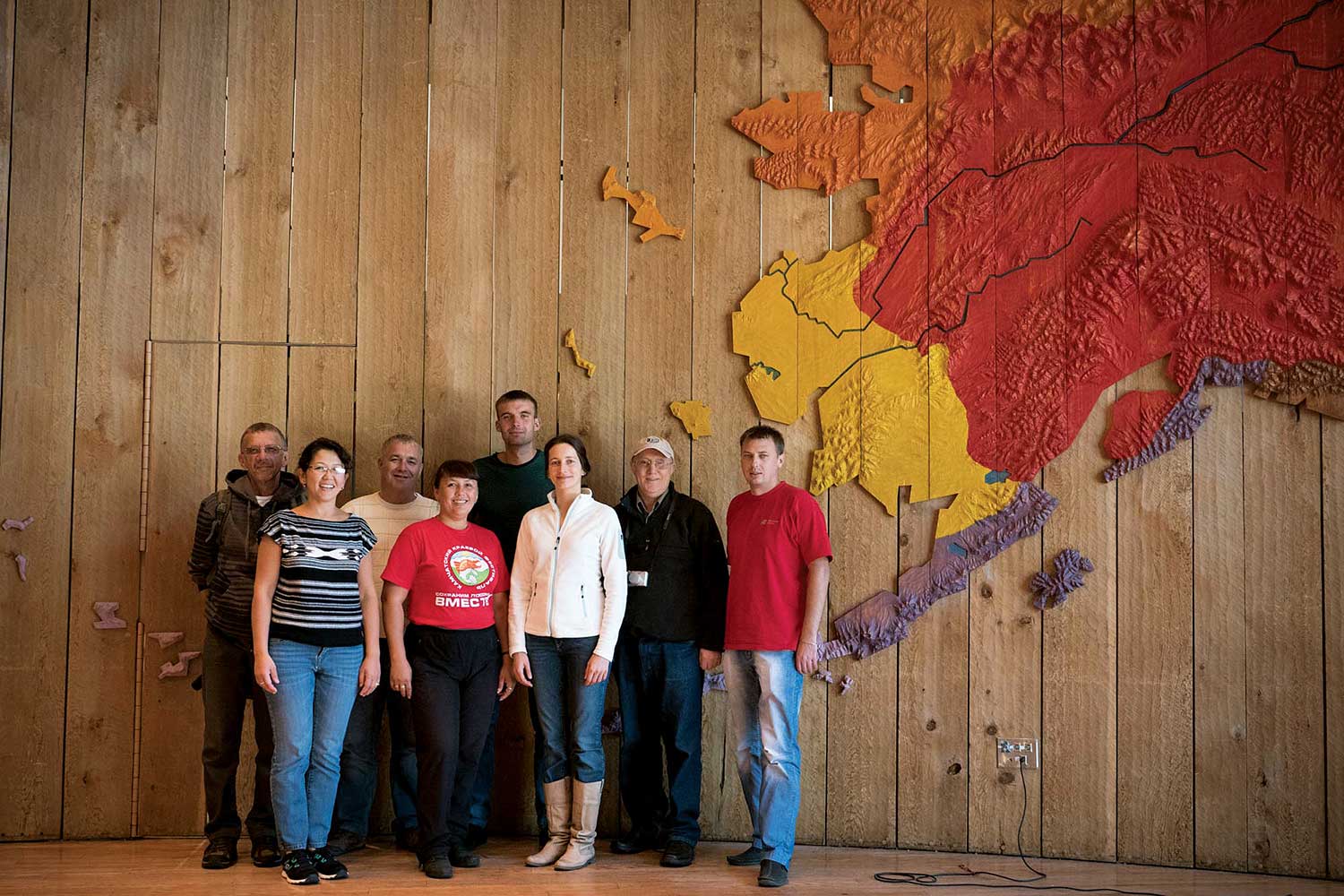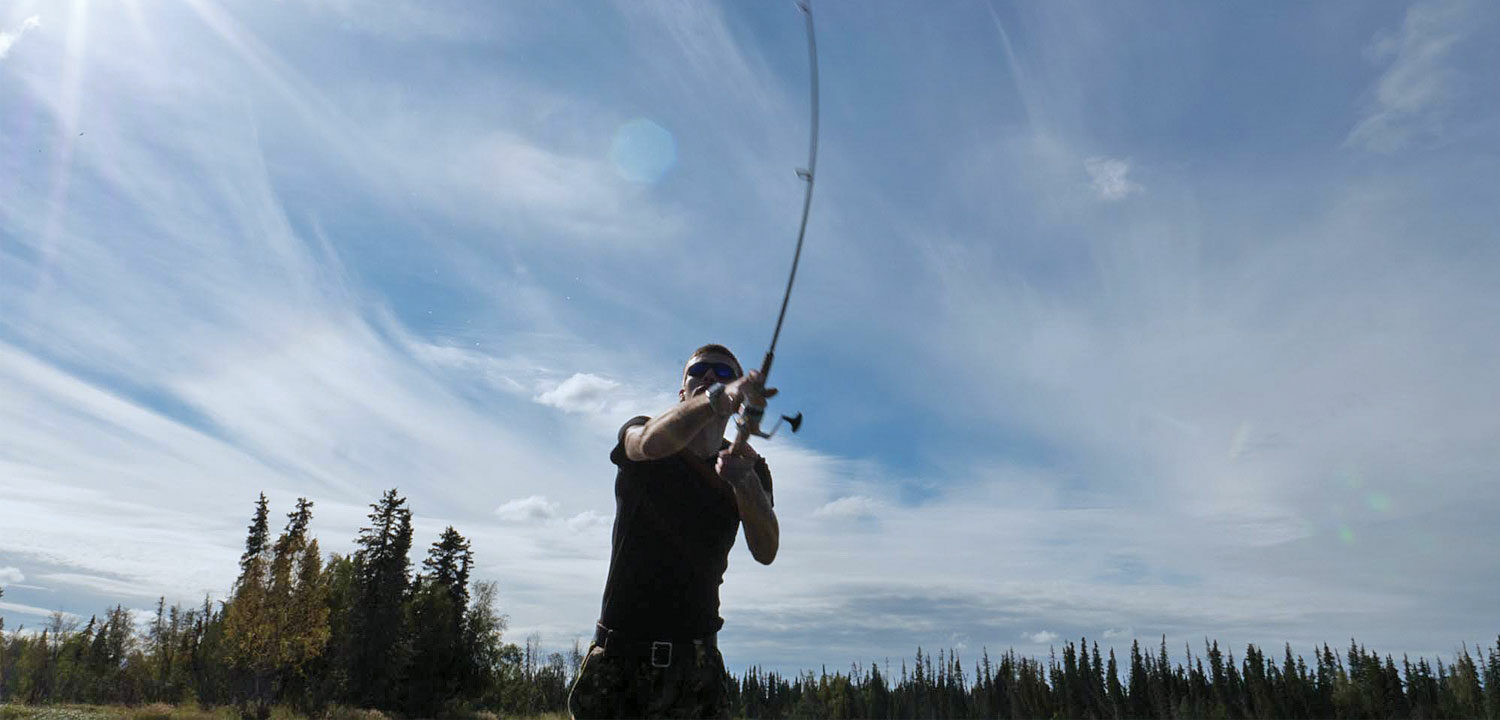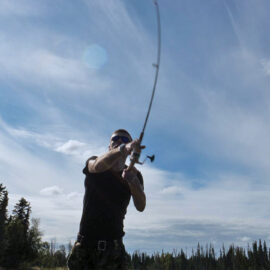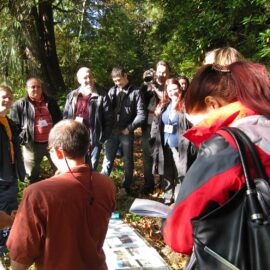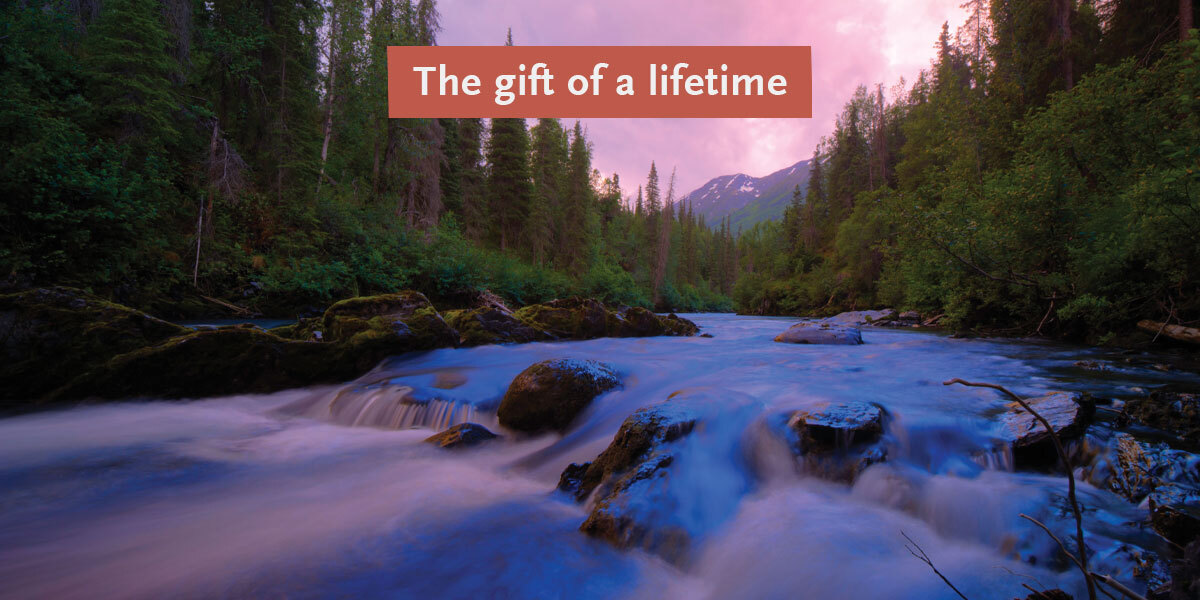WSC hosts exchanges on sportfishing, watershed management.
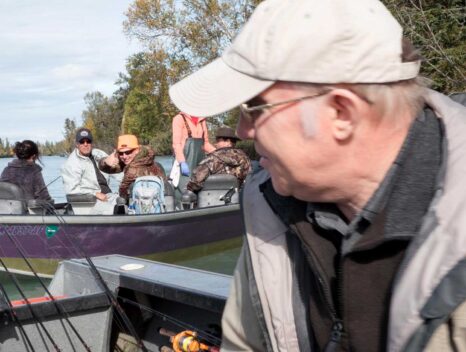
The Wild Salmon Center hosted two exchanges last summer to foster relations between Pacific nations that rely on salmon for their culture, food and livelihood. In July, WSC and the Yukon River Drainage Fisheries Association co-hosted an exchange between Kamchatka conservation leaders and Canadians and Alaskans. Participants learned about Alaska’s dual subsistence rights management system for both indigenous and non-indigenous communities, and how watershed management practices can benefit subsistence, sport, and commercial user groups. The exchange also greatly enhanced their understanding of issues contributing to the Yukon’s declining Chinook salmon populations and how these issues are being addressed. Kamchatka’s Bolshaya River is also facing declining Chinook stocks.
In September, six sport fishing and conservation leaders from Russia traveled between Anchorage and the Kenai Peninsula to learn about salmon management and best practices in sportfishing. The exchange focused on how the different types of fisheries (particularly sport and personal use fishing) are assessed, managed, and regulated, and how commercial, sport, and traditional laws balance and overlap with one another. The exchange culminated with a trip to the Russian River in Alaska to see the annual sockeye migration and a day fishing for coho on the Kenai.
